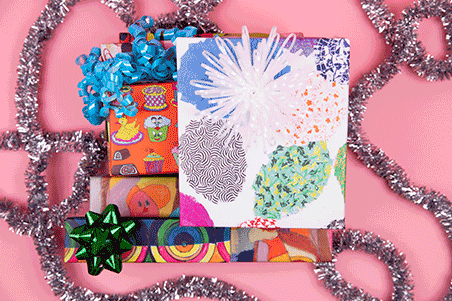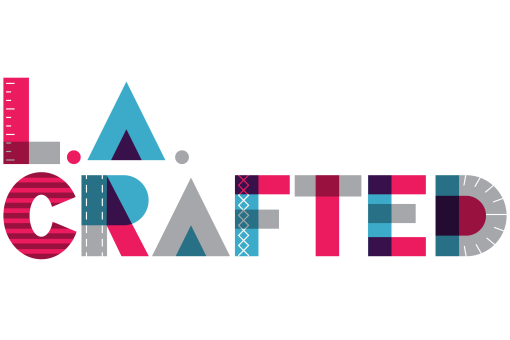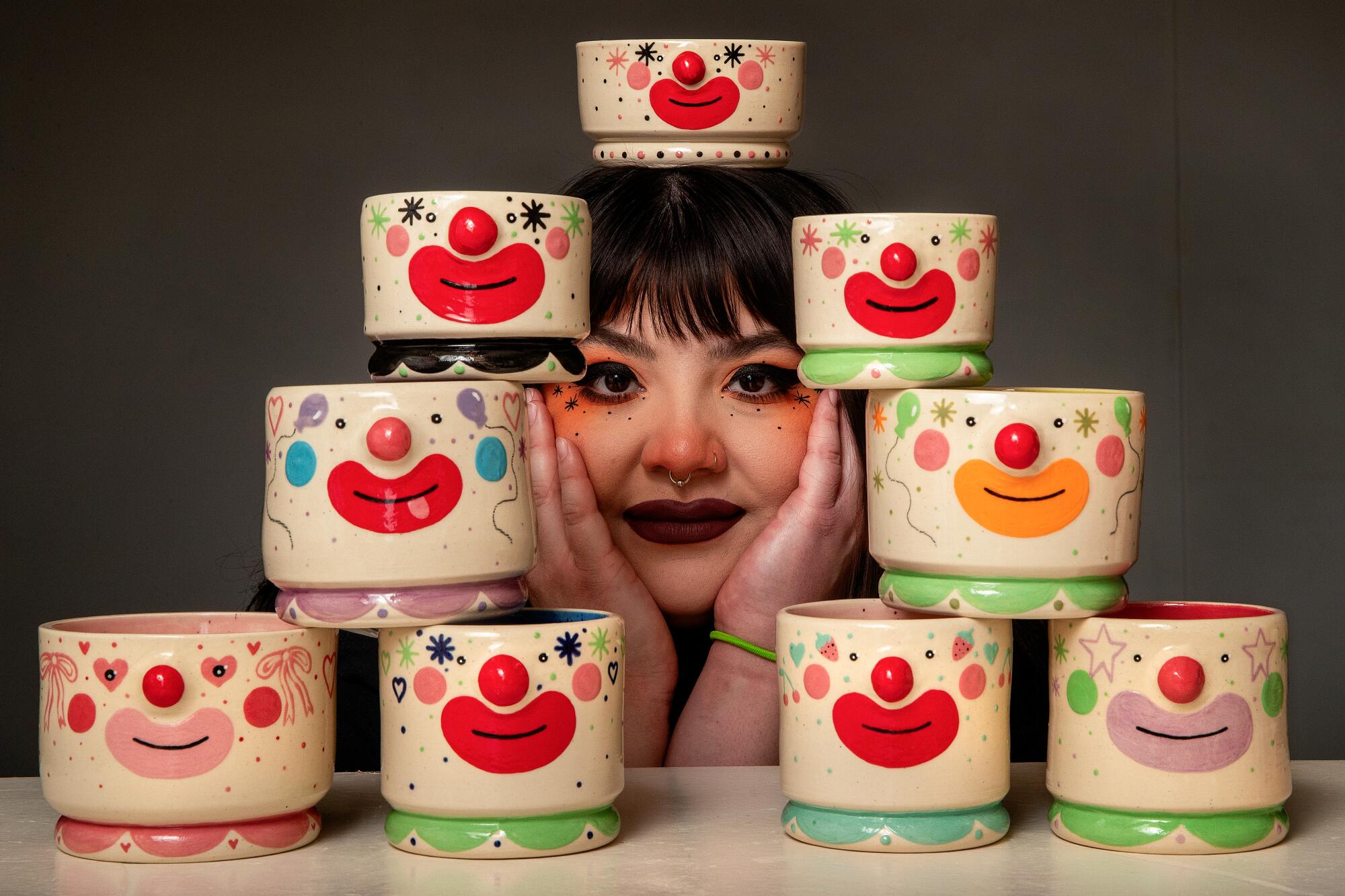
- Share via
Soraya Hannah Yousefi didn’t kick off her career with an internship or an entry level position; she began with a box of air dry clay and an Instagram account.
It was May 2020 and her life was feeling upside down as she graduated from Cal State Northridge with a degree in communication studies. Yousefi was living with her parents in the San Fernando Valley, and like many 20-somethings, she was firing off job applications to no avail amid a global pandemic. Yet that strange, stagnant period propelled her into a career as a full-time artist.
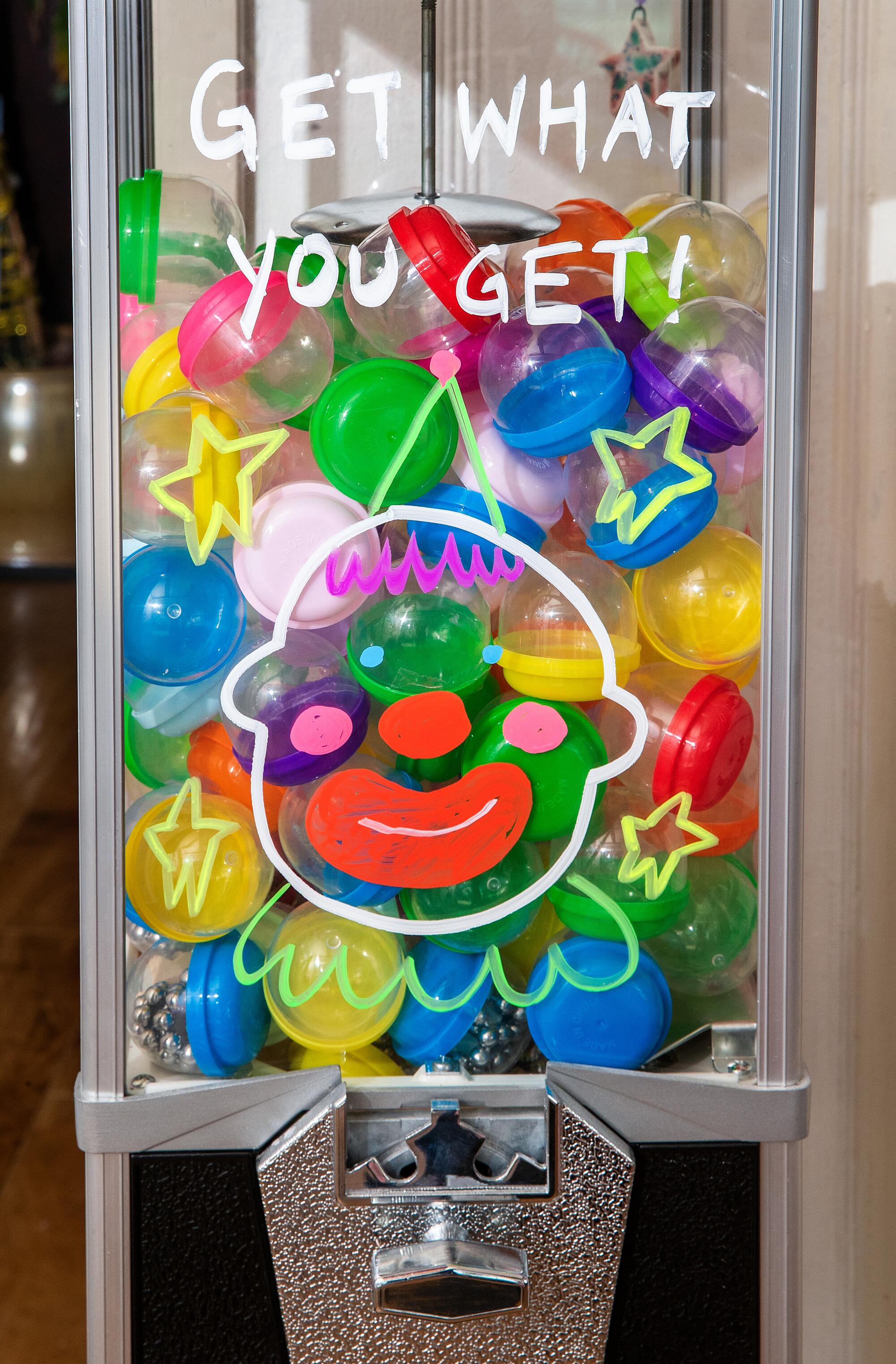
“You know how people say, ‘Oh, Michael Cera was just at the right place at the wrong time and now he’s an A-list actor,’” said Yousefi, referring to a common internet joke about how Cera doesn’t enjoy being an actor. “I’m like the Michael Cera of pottery, where I was just kind of in the right place at the right time.”
These days, Yousefi, 28, is known as shy.jpeg by more than 50,000 people across Instagram and TikTok. (Her username was inspired by her initials: S.H.Y.) She’s gained a devout following by making colorful ceramics that look like clown faces — bowls, cups, ashtrays — that she sells both on her website and at local retailers like Just What I Kneaded bakery and the shop at Bob Baker Marionette Theater (for which she’s created several batches of limited-edition cups and bowls).
Visit several L.A.-area markets, craft fairs and open studios to find intriguing gifts to buy and to get yourself in the holiday spirit.
It’s easy to understand why Yousefi’s work gained such rapid momentum; her vibrant and whimsical ceramics are deeply unlike the neutral, earth-toned wares often seen in traditional ceramic shops. The glossy clowns are emotive and boisterous — each face painted with a distinct mood, color palette and tiny decorations that mimic her own eye makeup. The signature elements are a cartoonish clown smile and a bulbous nose that people can use as a sort of mug handle.
“I’m at this place where I cannot work fast enough for the demand that I have,” said Yousefi, who sells about 200 clowns online each month, though the demand for her pottery is much higher. “My last handful of drops sell out within minutes, which is insane. As soon as I finish one bulk order, I have another one in my email waiting for me.”
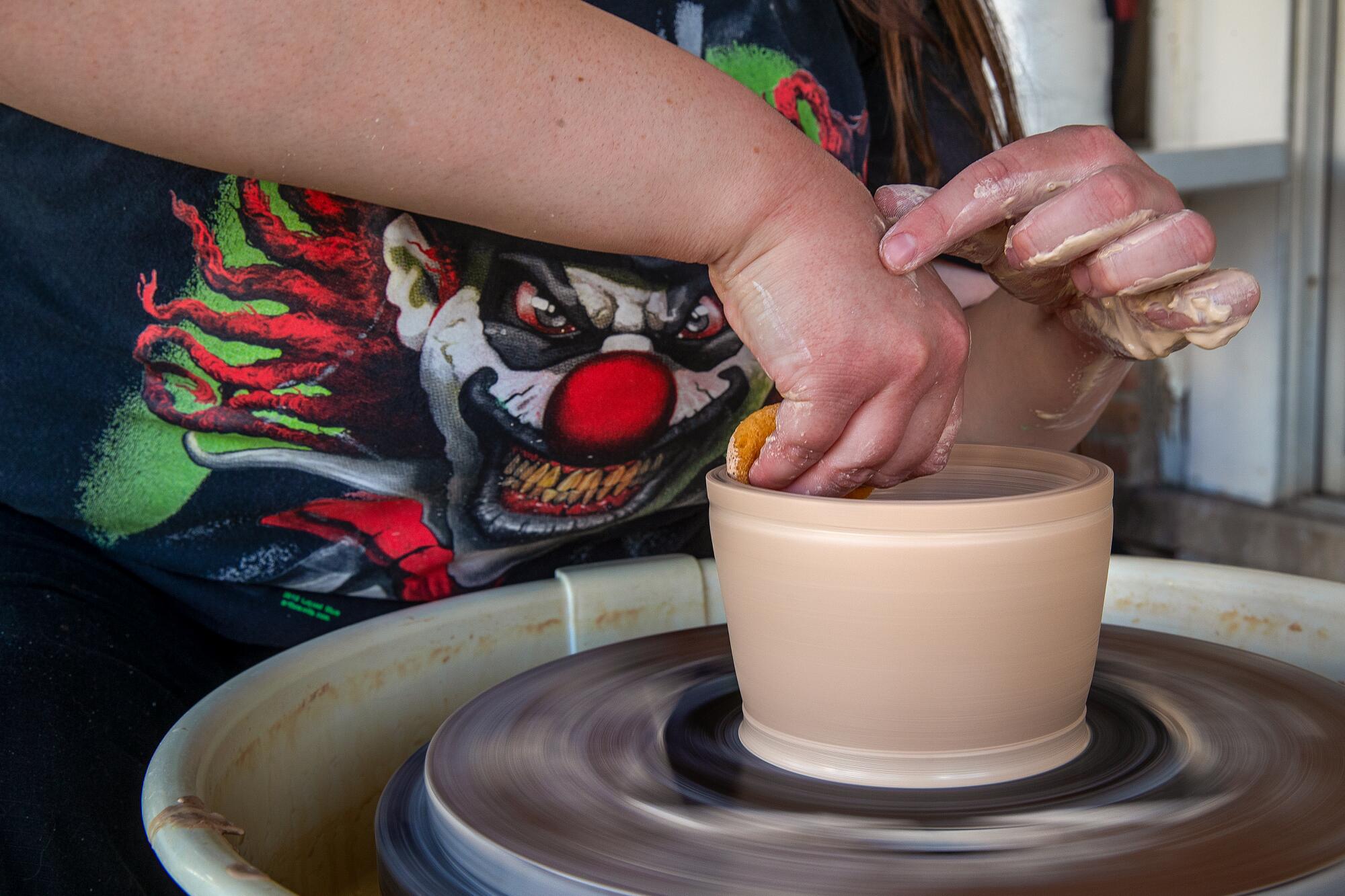
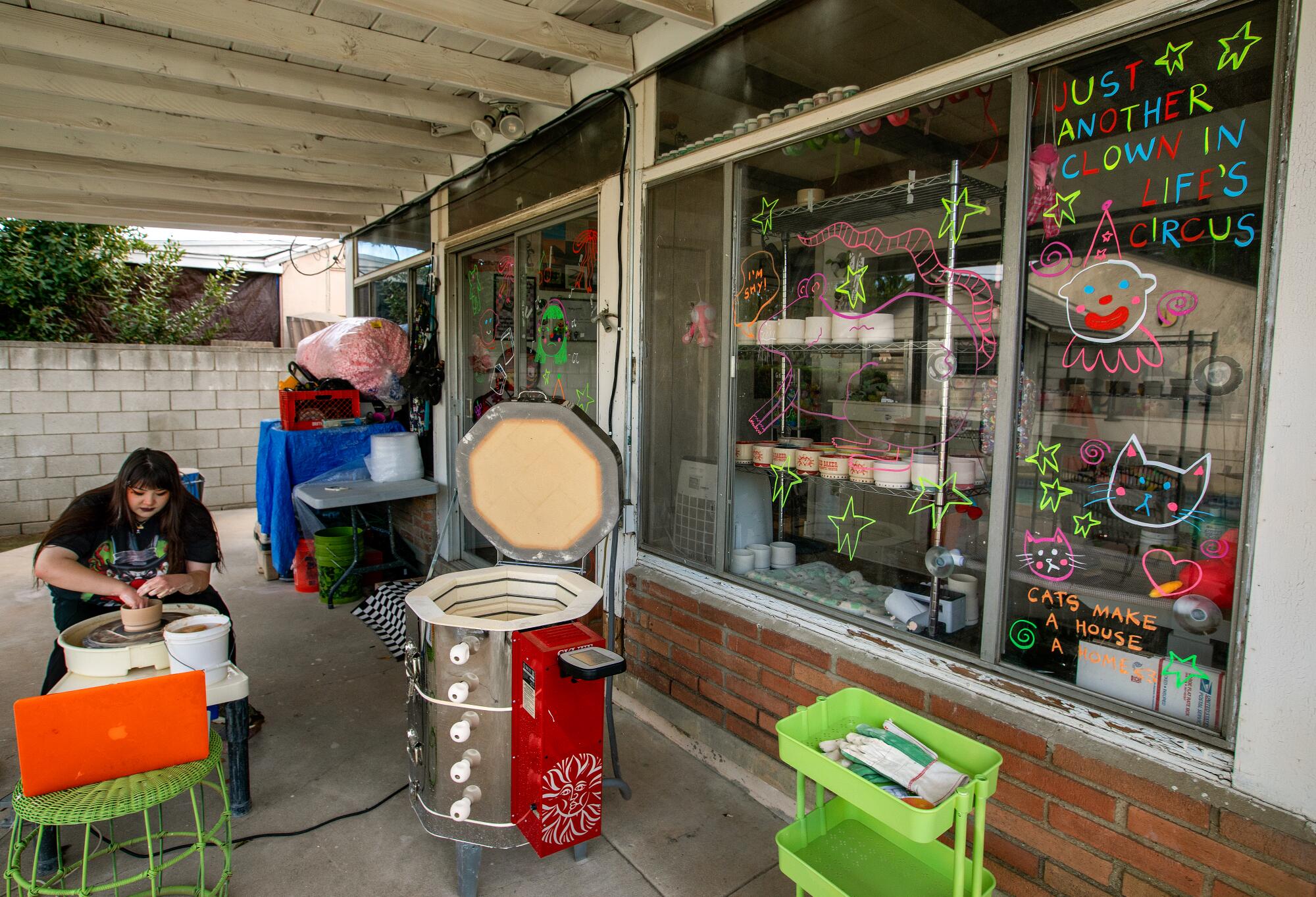
Perhaps it has something to do with generational aesthetics, but Yousefi has noticed that many of the people who gravitate toward her maximalist work online and in person seem to be Gen Zers and millennials. “Older people look at me like I’m crazy,” she said. “They just don’t get the vision. I’ve disgraced the culture of pottery.”
Though she never pictured this career, Yousefi has always had plenty of artistic hobbies. Around her desk, it’s easy to spot the fruits of some of the different crafts she’s tried: there are doodles, paintings, necklaces, magnets, keychains and buttons scattered around her ceramics, and she’s also enjoyed doing makeup, airbrushing tote bags and giving people stick and poke tattoos.
But when it comes to Yousefi’s journey as a ceramicist, she found herself uniquely focused and motivated.
“I took a ceramics class in high school and I loved it, and I always meant to get back into it,” Yousefi said. “For years, I was asking my best friend, ‘Let’s take a pottery class, let’s do it.’ And we just never did, and I was so scared of doing it alone.”
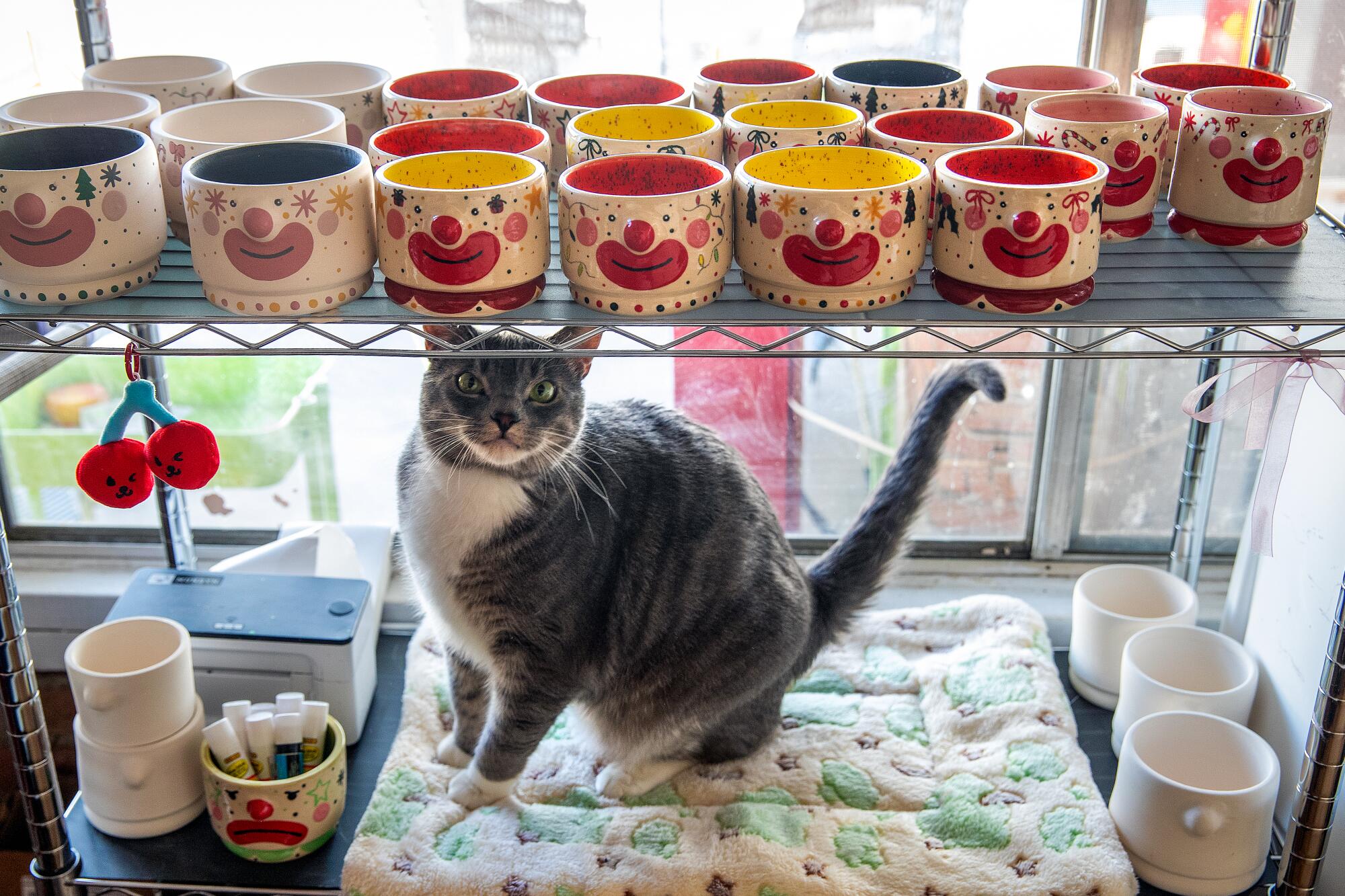
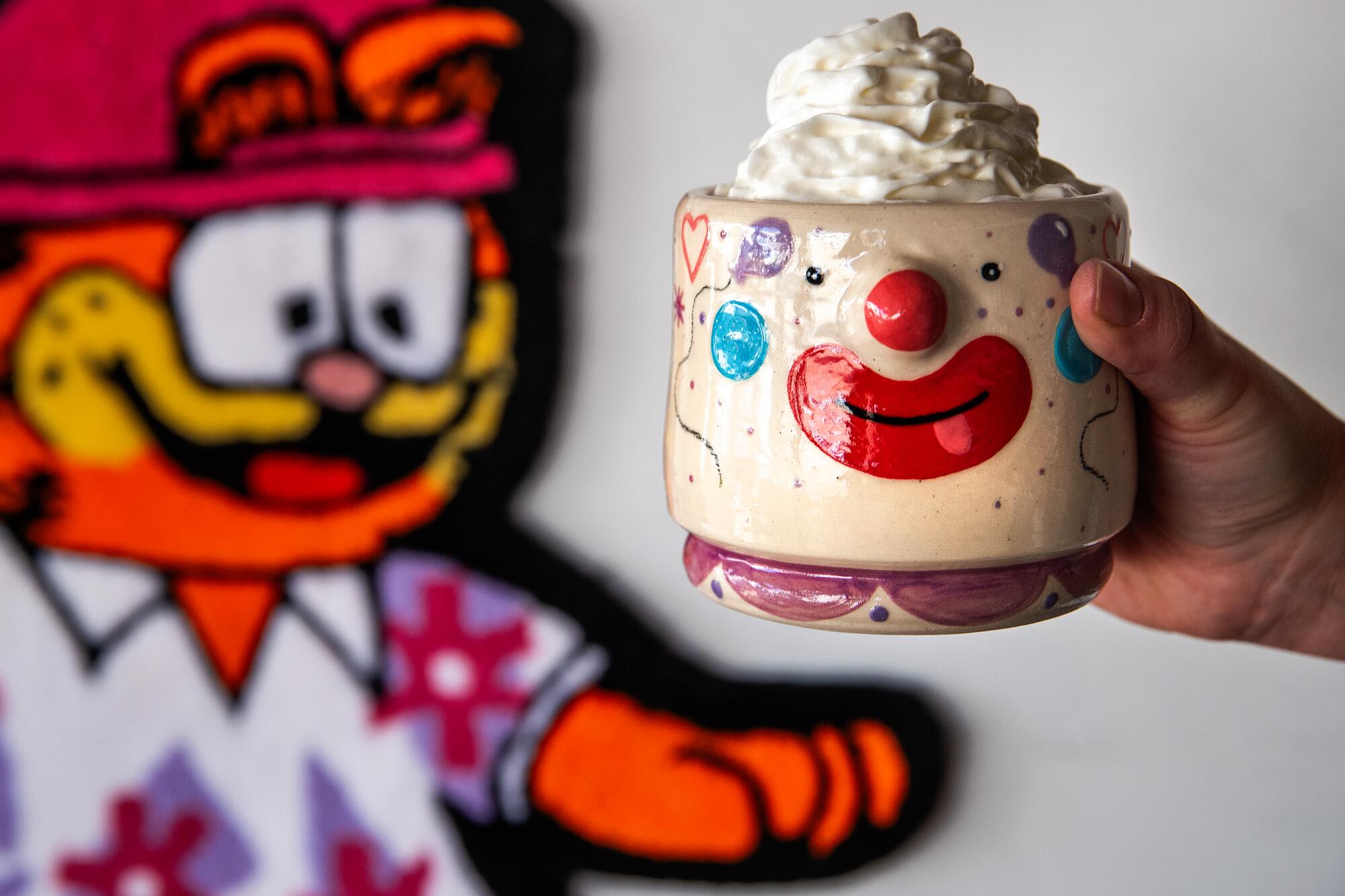
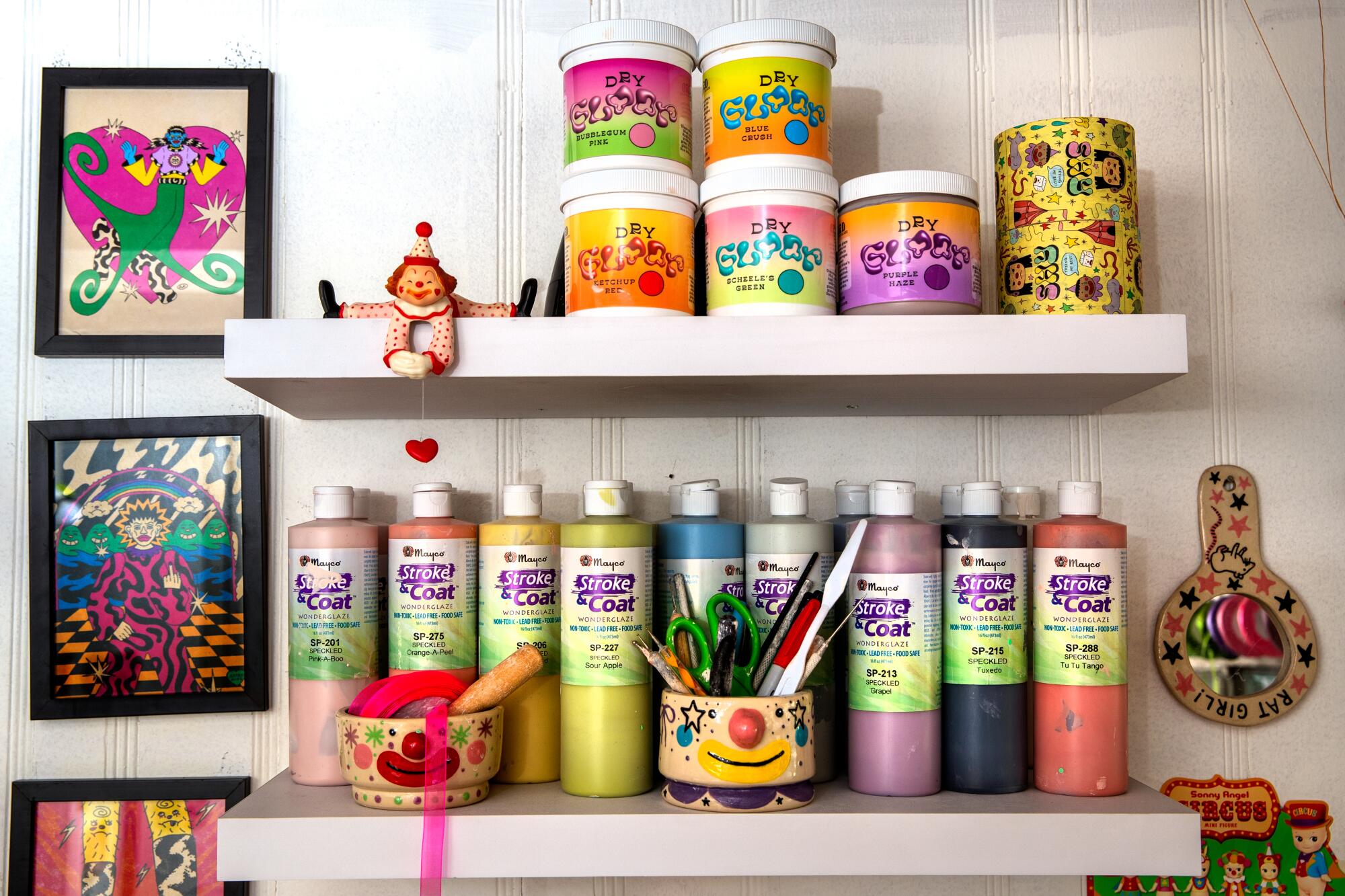
Even from that one high school class, Yousefi had a basic idea of how to work with air dry clay. “I don’t know what it was about late 2020,” she said. “I think it was just having all the free time to just really sit down and commit to something. All day, every day, I was just sitting there hand-building my little pots and painting them.”
As she posted images of her air dry cups and bowls online, people immediately started commenting that they wanted to buy her ceramics. As exciting as that was, she quickly realized that there would be a lot more to learn.
“I was definitely selling my pieces way too soon,” she said, “because I was selling these pots and then I would get messages from people being like, ‘’Hey, I put a plant in this and watered it and then it exploded.’”
The L.A. Times partnered with Creativity Explored, which supports a neurodiverse community of artists with developmental disabilities, for its annual holiday wallpaper project.
Soon enough, Yousefi found a man named Fish who was selling his late mother’s kiln on Craigslist. Though it was far too small, and she was still using air dry clay (which cannot be fired in a kiln), she bought it for $400. By April 2021, Yousefi saw an ad for a four-week-long wheel-throwing class at the Pottery Studio and decided to sign up for a class at its Sherman Oaks location.
There, she was able to learn how to use a pottery wheel and transition into kiln-fired clay, which allowed her to start cranking out pieces more consistently. As she posted her pieces online, they often matched popular trends. She put colorful designs with frogs and cows on various ashtrays and vases and played around with different nostalgic toy-inspired designs. But for whatever reason, her videos and photos of clown ceramics always seemed to do better than the rest.
“I unintentionally became the clown girl,” she said.
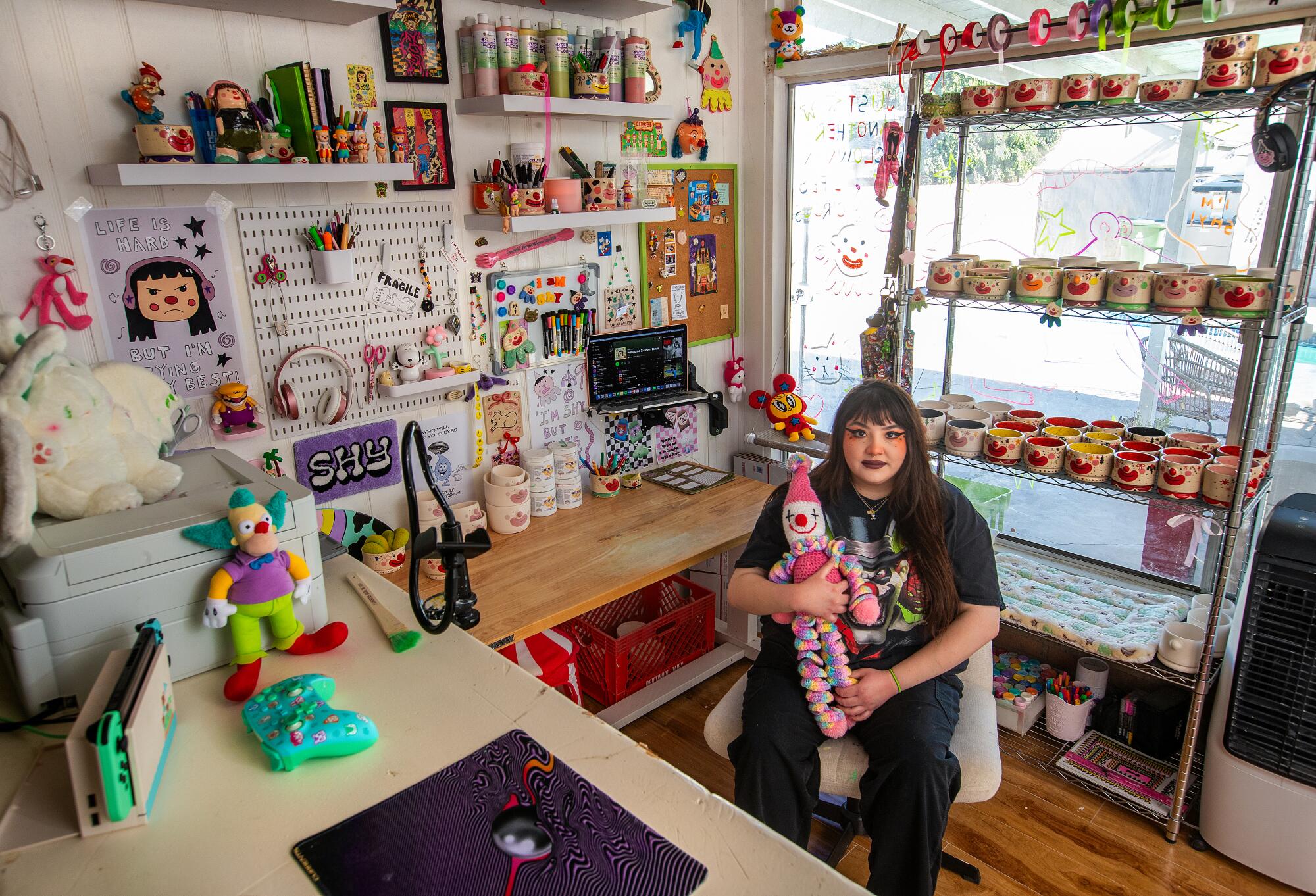
Yousefi certainly likes clowns, but she’s not obsessed with them in the way that people might assume when they see her art. But life gave her lemons, and she decided to make clown cups filled with lemonade.
“I think clowns are just silly, and I think life is silly,” she said. “And people my whole life have told me I wear clown makeup. I think I just subconsciously have a thing for clowns.”
Once she purchased a pottery wheel in early 2022, Yousefi started making her clowns at home and bringing them to the Pottery Studio’s kiln, but as her sales grew, she realized that she’d need a quicker way to get her pieces fired. Bringing her work to a communal studio for firing meant that wait times could be long and totally out of her control, and she wanted to keep up with the pace of orders she was getting.
She also wanted to start using vibrant Cone 5 glazes on her ceramics, which wouldn’t be possible at a Cone 10 studio like the Pottery Studio. (Cones refer to the temperature that different ceramics need to be fired at in the kiln.)
“I was trying to experiment with colors, and it just wasn’t coming out: yellow didn’t even work, purple didn’t work, all my pieces looked so dark,” Yousefi said. “But most studios around L.A. are Cone 10.”
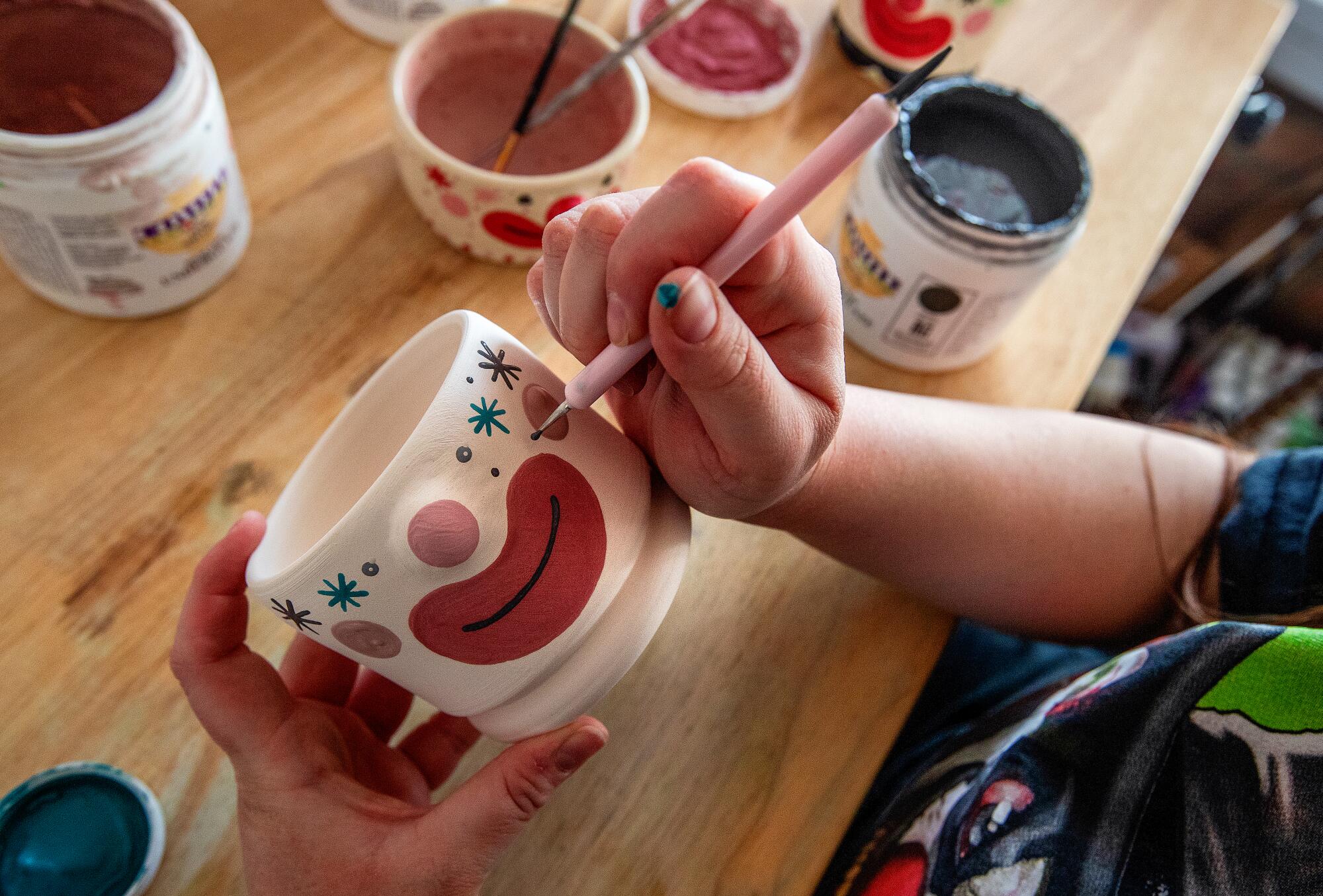
That motivated her to get on a site called Kiln Share, where she was able to connect with a woman named Candy who rents out her kiln in East Hollywood. This allowed Yousefi to start using more intense colors on her pottery and helped her take on larger orders.
Over the course of 2022, Yousefi also started selling her clowns at local events and stores. Friends helped by promoting her work to local vendors as they shopped, connecting her with such stores as Cry Baby’s Rodeo and the Midnight Hour Records. She had already sold hundreds of clowns by the end of the year, but when a TikTok video of her giving a popular YouTuber a clown cup went viral last December, her orders spiked significantly.
It’s taken a lot for Yousefi to feel confident about her own work. Less than a year into making a livable wage as an artist, she still jokes about how her clowns are just “silly” little guys made with her “dumb hands,” but she’s trying her best to value her art.
“My whole life, I’ve had issues with self worth, and realizing I’m a special individual, as we all are,” she said. “So it’s been interesting to see that translate into my business.”
Even as she gradually raised her prices from $18, which barely covered material costs, she was worried that customers would totally lose interest. “This time last year, I was selling these for $30,” Yousefi said as we spoke last month. “Each one takes me hours, so I think I was making $5 an hour. And so many people — people who come up to my table; my therapist; my friends — have been like, ‘You need to raise your prices.’”
She eventually raised her price to $50, which terrified her. “I had convinced myself that people would be like, ‘Are you crazy? Unfollow; block; report,’” she said. But as it turned out, nobody questioned it. She now charges about $70 for her clown cups, which allows her to make enough to consider this her full-time job.
Yousefi often tries to find ways to switch up her clown content to ensure that people will stay engaged. In February, she started a series called “Roll for Clown” — inspired by another user’s popular series, “Roll for Sandwich” — that tends to perform well.
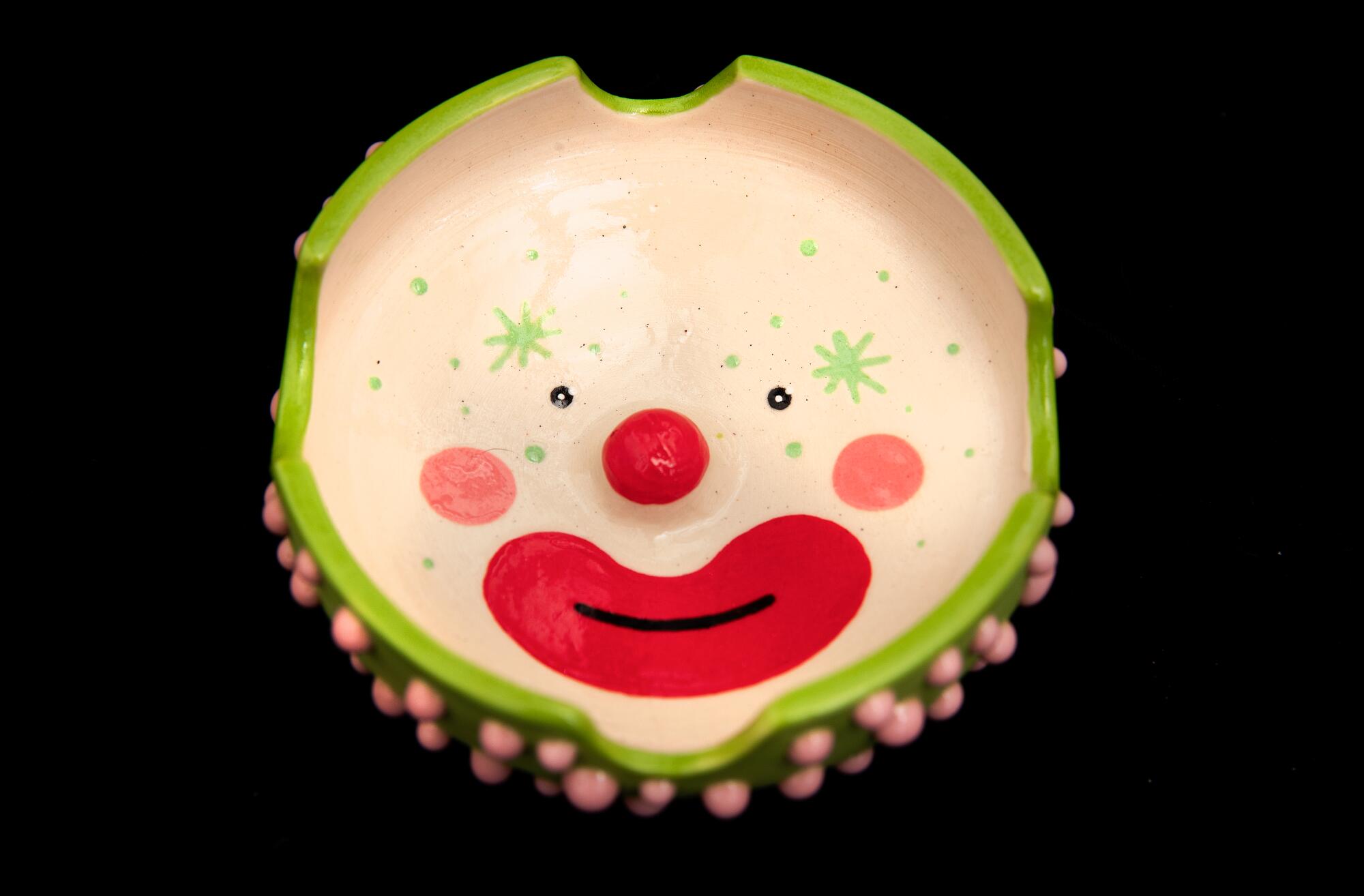
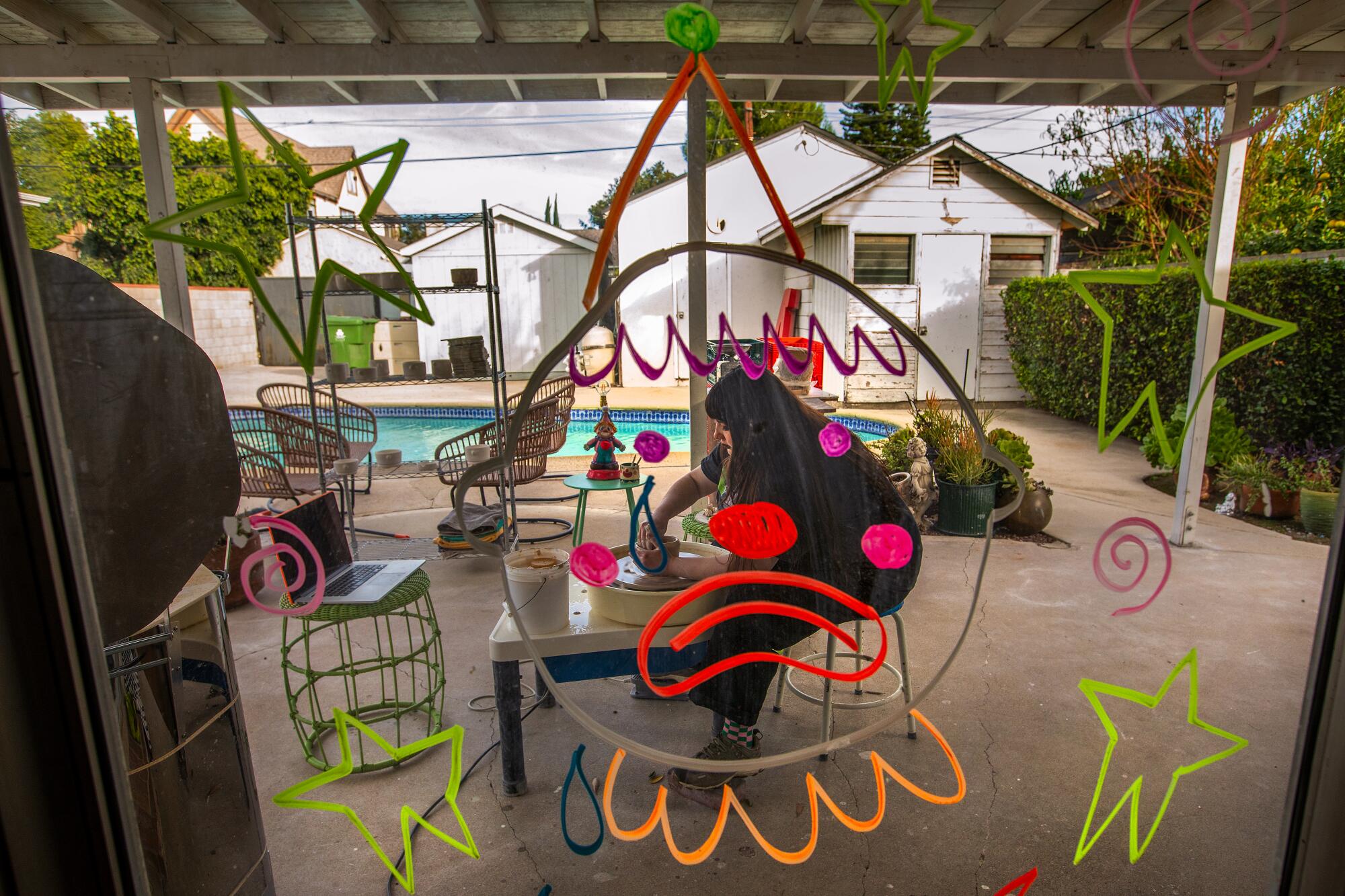
In November, Yousefi became the proud owner of her own full-sized kiln, meaning that she can now fire batches of about 30 pieces in her own backyard. As she enters 2024, she’s hoping she’ll be able to slow down and set aside some time for new projects.
She’d eventually like to open her own studio, where people could play around with colorful glazes and let their creativity run wild.
“I like silly, kid-looking, nostalgic pieces, and I would just love to have a studio that looks like that,” she said. “A lot of the studios around L.A. are beautiful spaces, but they are very minimalist. I would make it very colorful and clown-y.”
But even as she dreams up new artistic goals, Yousefi won’t be leaving clown-town altogether.
“If you really think about it,” she said, “we’re all just clowns in life’s silly circus.”
In this series, we highlight independent makers and artists, from glassblowers to fiber artists, who are creating original products in Los Angeles.
More to Read
Sign up for The Wild
We’ll help you find the best places to hike, bike and run, as well as the perfect silent spots for meditation and yoga.
You may occasionally receive promotional content from the Los Angeles Times.

